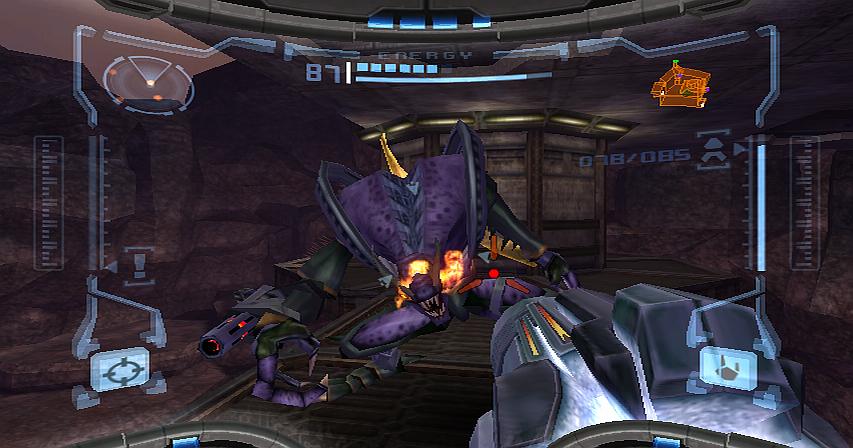Why you can trust 12DOVE
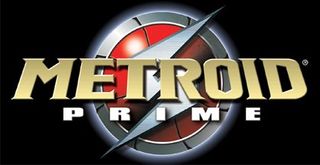
We just spoke of the first game – it’s easily one of, if not the best GameCube game out there, now refitted with strong motion controls (set them to advanced!) and widescreen display. The strange thing is, this game still looks respectable even after seven years, and surprisingly stands above a large number of brand new Wii titles. Just goes to show the power of design and style over cutting edge horsepower.
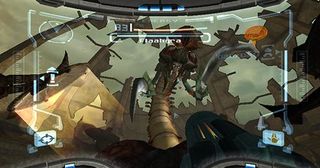
With so many years between its original release and this re-packaging, it’s easy to forget what the first Metroid Prime actually did - usher in a completely new, universally acclaimed take on a series that hadn’t been relevant for eight years. This is a shining example of how to update, modify and radically alter a property while keeping it firmly rooted in its traditions. And while we cannot overstate how much we (still) love the first game, its sequels were so similar they retroactively lessened its impact.
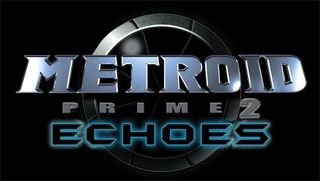
Echoes, released just two years later, took everything the first game did and… did it again. The experience is almost identical - a moody, brain-teasing space opera with tons of power-ups, backtracking and mystifying lore. So while ourreview scorewas high, the sense of awe was gone, and now it was just a great game, not a great game that relaunched an ailing franchise.

Then there’s the extremely tired dark world/light world gimmick that Echoes relies on for almost all of its puzzles. When half of the planet causes damage (because it’s evilly dark, see?), and all the bosses have multiple forms with basic, time-intensive patterns, you lose the desire to press on. Then you get an amazing new power, like the sound-reflecting Echo Visor, and you’re enthused enough to see how it works and what parts of the world it opens to you. But you still can’t shake the feeling you’ve done this before, and the tacked-on multiplayer modes are even more outdated today than they were in 2004.
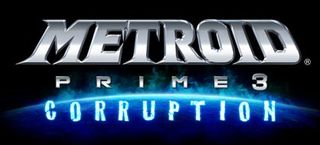
Corruption is barely two years old, and as such is the least-changed product on the disc. It’s definitely a step up from Echoes, with more emphasis on supporting characters and a plot that spans multiple planets, but it still has repetitive bosses and still doesn’t let you annotate maps (so you can maybe not backtrack for two hours trying to remember where that crack in the wall was). Even though we highly recommend Prime 3on its own merits, there’s still an inescapable sense of déjà vu that detracts from the first game’s accomplishments… because now you’ve done this twice before.
Essentially, developer Retro Studios never learned from its mistakes. Every tiny problem in Prime 1 is also in Echoes and Corruption. The basic gameplay is copied directly. Hell, all three even end in lengthy fetch quests that needlessly tack on another hour or more.
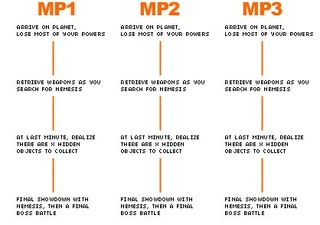
We could piss and moan forever about ways to moderately improve these already stellar games, but instead we’ll move to what Retro did add. For those that plan on playing repeatedly, there’s now an Achievement/Trophy system that awards you medals for completing tasks. The more you earn, the more bonus content you can unlock. But uh, some of this stuff is prohibitively expensive.
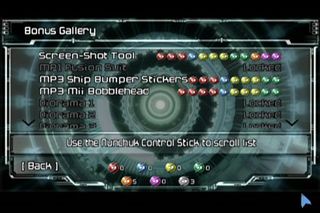
Why not just GIVE us the friggin’ content instead of making us work for it? This is a greatest hits compilation, a supposed celebration of the trilogy’s accomplishments. Do you have to watch the Lord of the Rings trilogy four times to unlock the bonus features? No, they’re just there. The ability to hear Metroid’s epic music or take (and share) your own screenshots should be similarly accessible.
More info
| Genre | Shooter |
| Description | With amazing bang for your buck, Metroid Prime Trilogy puts three great games in one. Sure, it may have the some minor issues present in all three games, but the first two entries have received Wii controls that are an improvement, not tacked on. Practically a must-buy. |
| Franchise name | Metroid |
| UK franchise name | Metroid Prime |
| Platform | "Wii" |
| US censor rating | "Teen" |
| UK censor rating | "Rating Pending" |
| Release date | 1 January 1970 (US), 1 January 1970 (UK) |
A fomer Executive Editor at GamesRadar, Brett also contributed content to many other Future gaming publications including Nintendo Power, PC Gamer and Official Xbox Magazine. Brett has worked at Capcom in several senior roles, is an experienced podcaster, and now works as a Senior Manager of Content Communications at PlayStation SIE.
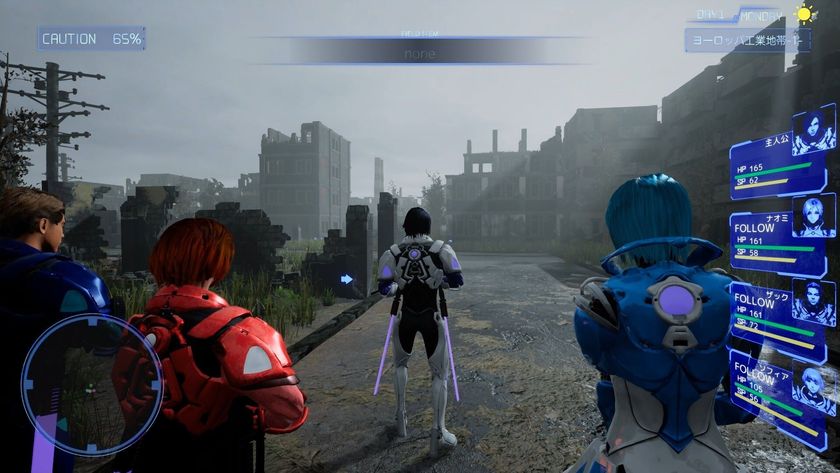
Persona and Metaphor: ReFantazio composer's new JRPG gets a Steam Next Fest demo, and it's basically a turn-based Metal Gear Solid
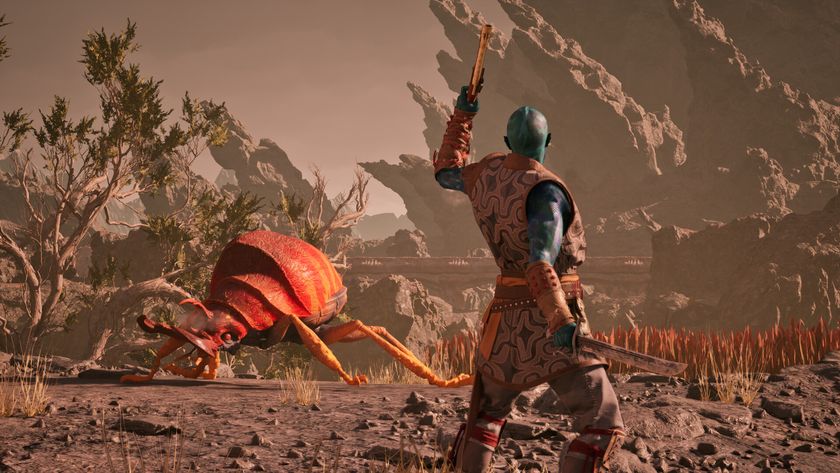
Avowed is nothing like Bethesda's RPGs, but The Elder Scrolls 6 should take inspiration from its combat
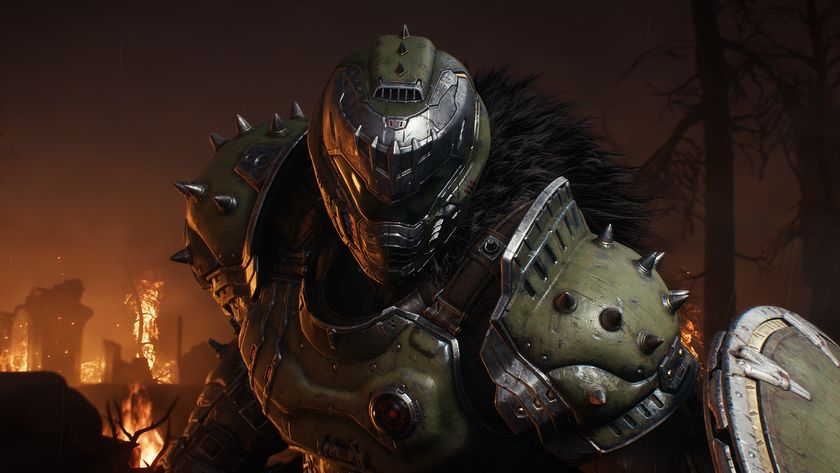
Doom: The Dark Ages developers go back to the OG 1993 FPS for inspiration: "Every time you look at it, you learn something new"
Most Popular





